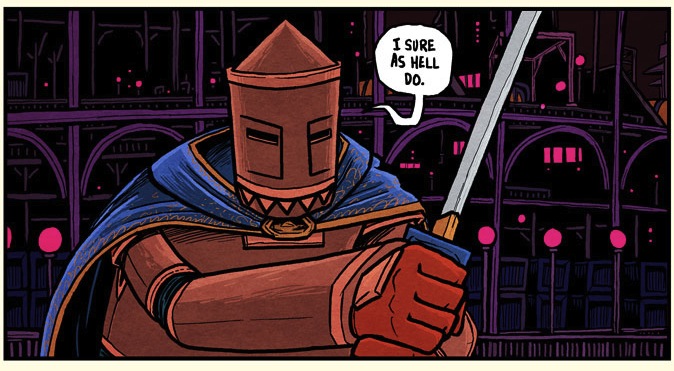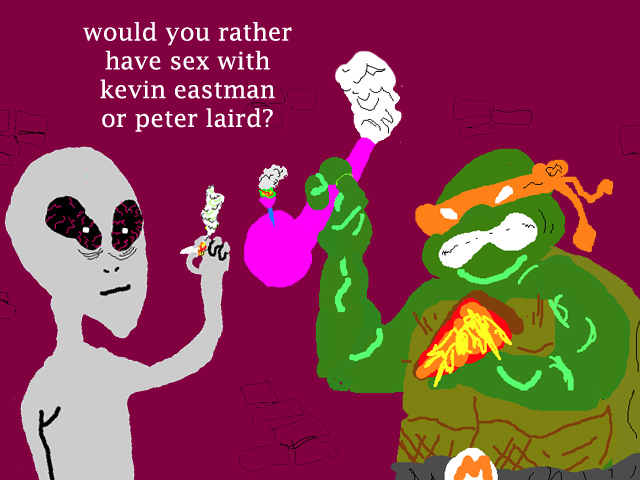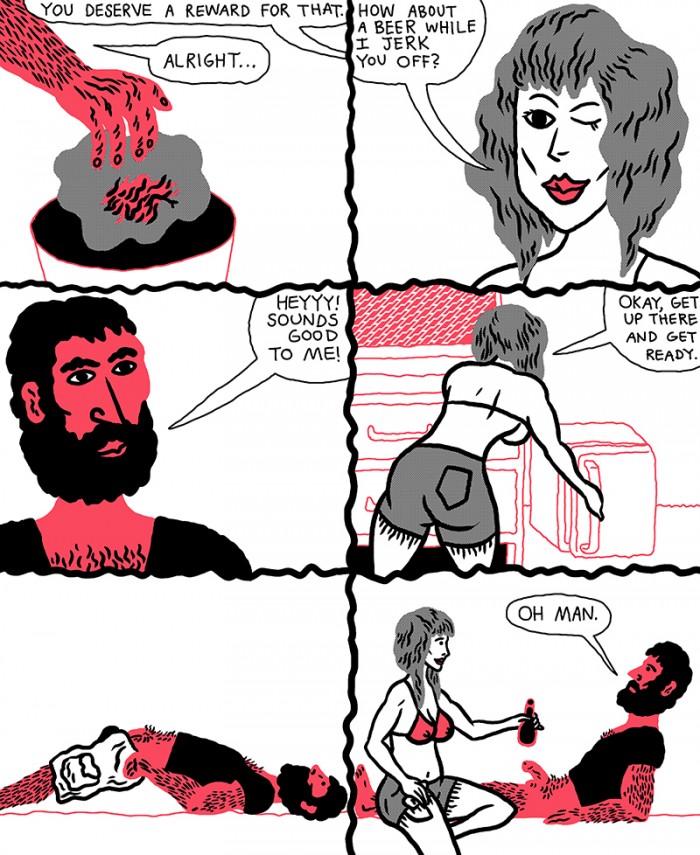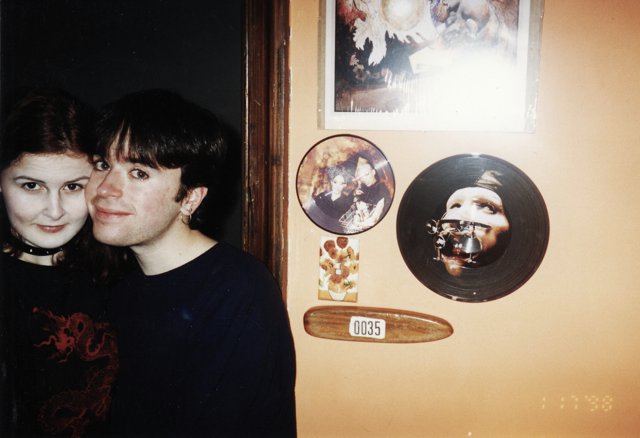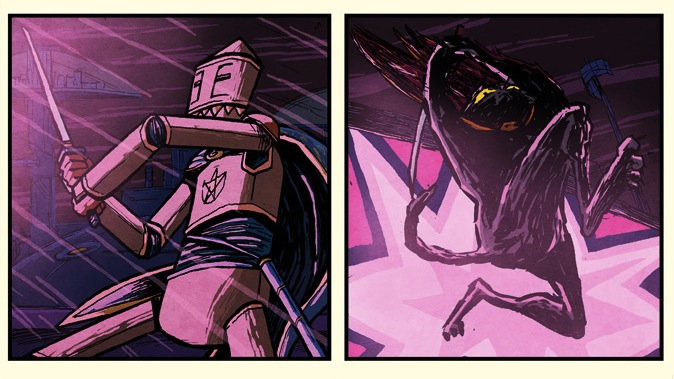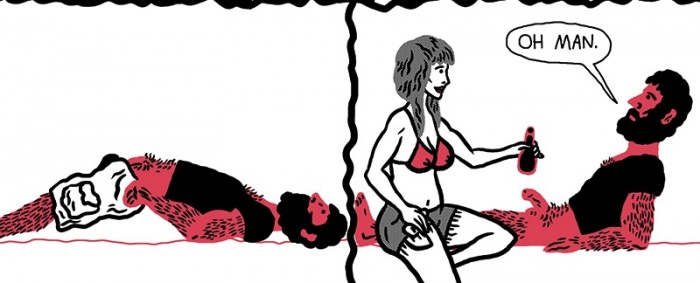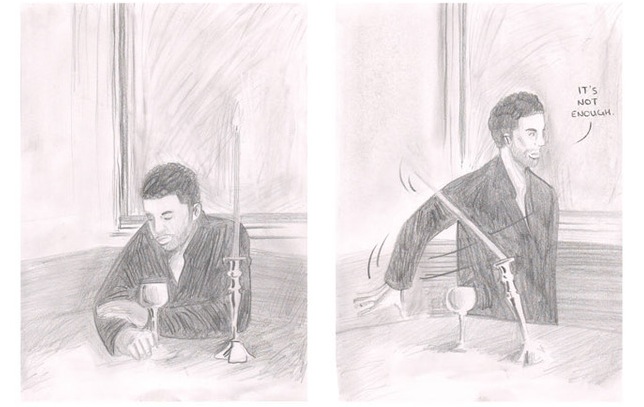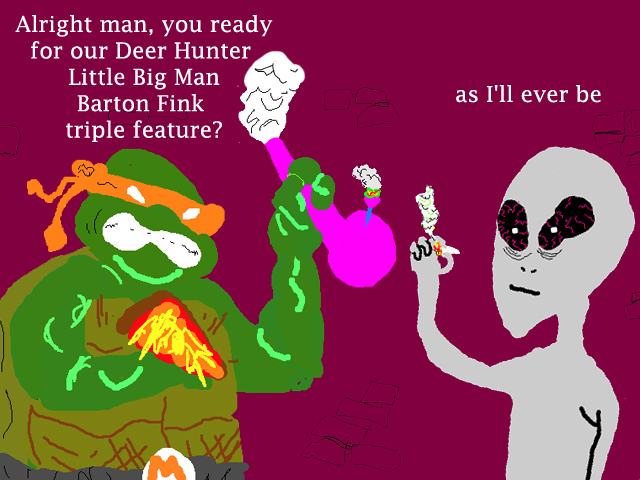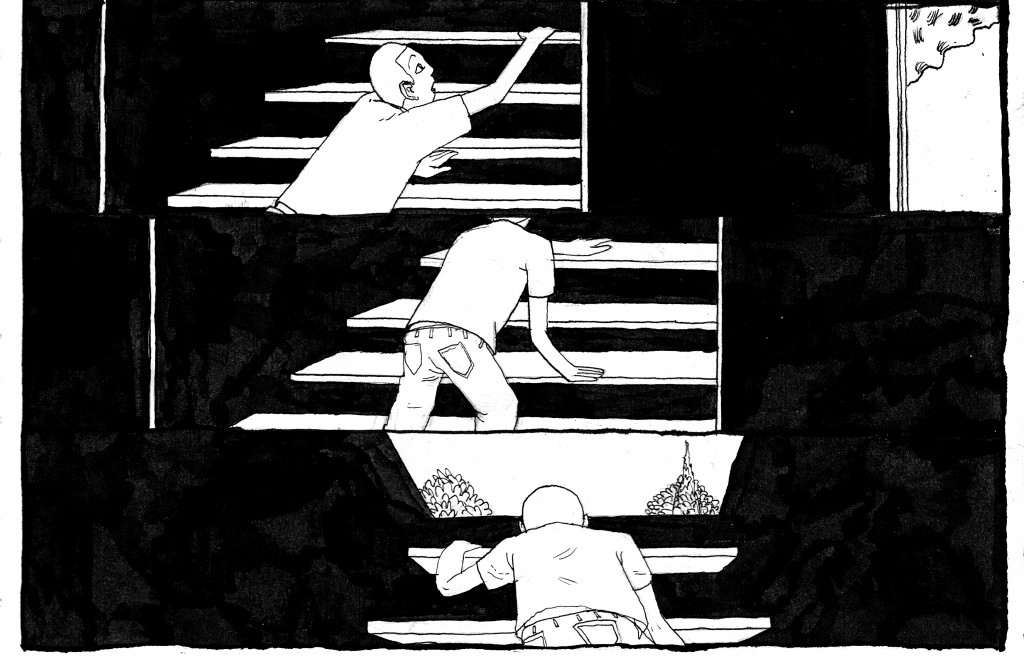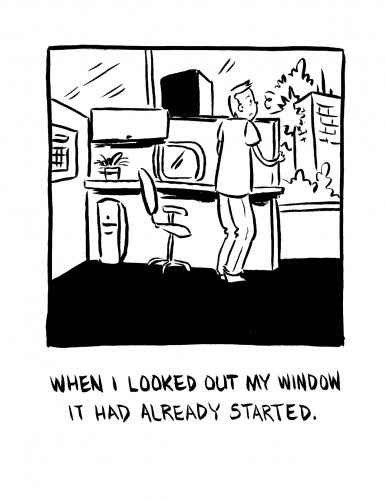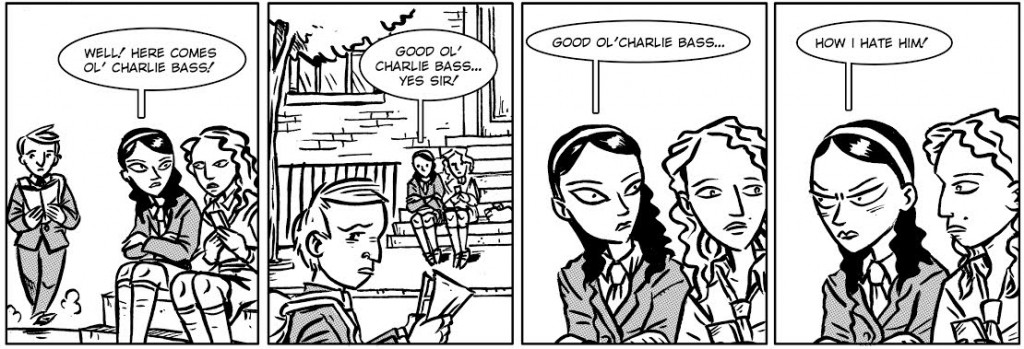* 1. Mad Men 2. Breaking Bad 3. Boardwalk Empire
* Boardwalk “Blackwater”
* I’m consistently entertained by this show, and amazed by that entertainment. I mean it. I haven’t re-read all my reviews so I’m not 100% sure, but I’m almost there: I don’t think I once reached the closing credits this season thinking “Meh,” let alone “Goddammit.” That puts Boardwalk in very rare company indeed. So I’ll go to war for this show, one of the great pleasures of my life over the past few months. I wish a fraction of the ink spilled over that shitty Homeland episode had been spent on this magnificent thing, this pretty hate machine.
* I’m not sure what new thing I can add to all the reasons I’ve cited before as to why I think this show really has become Great TV. Here’s what I said about it this time last year:
I think that when genre material gets sufficiently dark or weird, when its tropes become a form of sinister spectacle rather than just hitting the marks required by convention, that’s a depth all its own — a way to communicate the emotional and philosophical themes more commonly articulated by plot and dialogue, if at all. Boardwalk Empire the balls-to-the-wall engine of gorgeously shot death that perverts and slaughters its characters in periodic fits of nihilism is saying at least as much as some theoretical Boardwalk Empire the meticulously drawn character study, or Boardwalk Empire the rigorously developed allegory for contemporary political issues.
You can quibble over the quality of the execution, and that’s perfectly valid. But to dismiss Boardwalk Empire as phony baloney, as faux-Great TV, to say it’s empty-calorie gangsterism, is to make an argument that aesthetic sensation is inherently empty sensation. Personally, I think watching beautifully backlit bodies jerk from machine-gun fire for half a minute as men whoop and cheer says something without speaking. Same as a distorted guitar. Same as a visit from the Black Lodge. Its superrealism is real to me. There’s a line I wrote down from this episode and now I don’t know who said it, or when, or why, and google doesn’t help, but here: “Where’s the God in this?” As real as it gets.
* Part of the problem, perhaps, is that it’s obvious to everyone watching that this will never be a show that will make its audience complain “When is someone gonna get whacked?” This will never be a show that will frustrate audience expectations — delay their gratification in service of playing a season-long game instead of an episode-by-episode one, sure, but never frustrate them. For God’s sake, Terence Winter wrote “Pine Barrens” and spent the rest of his tenure on The Sopranos trying to convince David Chase to resolve the fate of the Russian. Is there a more perfectly illustrative anecdote than that in the history of television? The trick is to deliver what the audience expects in a way that feels like it fulfills those expectations rather than panders to them. Does Boardwalk pull it off? Watch the Richard sequence from this episode and then you tell me.
* It’s easy to overlook in light of everything else that happened — happened seconds later, even — but I think Gillian’s storyline in this episode was the first time I felt Boardwalk Empire really did right by one of its female characters, really treated her plight, her scheme, her damage with same sense of enormity with which it’s treated those of the men for so long. Her sexual brinksmanship with Gyp Rosetti amazed me.
Having driven away the men who could have protected her and Tommy from the depredations of Gyp and his goons, Gillian realizes, too late, that the Artemis Club truly is no place for a child, or even for her. So she attempts to free herself and her grand/son from captivity with the only weapon she has: her ability to figure out what men want, and deliver. This is likely the most high-stakes gamble she’s ever taken with her sexuality since the bad old days of her childhood relationship with the Commodore. Gyp is a 1) thin-skinned 2) sociopath who gets off on 3) sado-masochistic 4) humiliation and 5) asphyxiation: any one of those ingredients are potentially lethal to a prostitute forced to do business with them, let alone all of them in tandem with nothing less than the life of child in the balance. However monstrous and unsympathetic Gillian’s behavior has been throughout the last two seasons, I felt nothing but tremendous sadness for her as she put her body and dignity on the line, probing Gyp for his sexual secrets, delicately taking one step at a time until at last he put himself where she needed him to be. How devastating for her and us both that her best, the sum total of everything she’d been forced to learn by the men who preyed on her for years and years and made her into a predator in turn, wasn’t good enough. “Someone’s gotta lose.” Ugh, ugh, ugh.
* Her subsequent “conversation” with Nucky, after suddenly appearing, beatific and from out of nowhere, in a hallway full of dead people, was the episode’s most explicitly dreamlike moment, and as I’ve said over and over the show is rarely better than when it’s dragging the structure and imagery of nightmares into the real world. This was Nucky’s earlier hallucinations of a young Jimmy Darmody made real — a sudden and unavoidable encounter with the past in living form. What a nightmare for Gillian, and what a collision with the uncanny for the baffled, then horrified Nucky. Never forget, Enoch.
* Even Margaret’s material worked, at long last. Kelly MacDonald goes a long way toward overlooking how poorly the show has historically done by Margaret. Her rapidfire 180-degree morality turns throughout season one were a mess, and her fixation on religious guilt during season two was more consistent but also more dull, since nothing is death to drama like Roman Catholicism. For a long time it seemed like her newfound interest in women’s reproductive health and freedom was just a new way to atone after the failures of temperance and Jesus.
* But when she stepped out of the communal bathroom after her abortion and encountered the Luciferian presence of Nucky in the hallway, mirroring the miscarriage that brought him to her in the pilot episode, it all clicked for me: For the women of Boardwalk Empire biology is destiny and pregnancy is a life sentence. Margaret loses her baby at her abusive husband’s hands, driving her to Nucky (and driving Nucky to order a murder, for what I believe to be the first time). Years later, her pregnancy with Owen is the final straw for her decision to leave Nucky, and she abandons Nucky and (more importantly?) his money within minutes of reaching down between her legs and finding blood following her abortion. Pregnancy through rape irrevocably altered the lives of Gillian Darmody and her young son. Pregnancy by Jimmy wedded Angela Darmody to a man, a life, and a sexuality she had no business with. The first Mrs. Van Alden was kept in lonely thrall by her husband’s decision not to fund fertility treatments for her, and left him once she discovered he’d impregnated another woman. That woman, Lucy Danziger, viewed her pregnancy as parasitical, sucking away her life and looks and freedom, and ran from it as soon as she could. The inability of women of this time period to control their own lives without being able to control their own bodies is as much of a throughline through all three seasons as anything on the show. You wouldn’t know to look at it that Boardwalk Empire is one of the most feminist and pro-choice shows on television, but there you have it.
* That opening shot. Slo-mo balletic violence! Full Peckinpah! Slowly seguing into normal-speed villain walking up and firing into the camera! Full Scorsese! Margaret closes the door on Nucky at the end! Full Coppola! Nucky puts on a hat and disappears into the crowd! Full Silence of the Lambs! Not a show that’s afraid to wear its influences on its lapel.
* Also not a show that’s afraid to bob and weave a bit in terms of where you expect the weight of the narrative to fall. Who else thought we were headed for a big one-time-only winner-take-all assault? Instead we open with a gang-war montage (Godfather again, but violent like Casino) that takes place over the course of at least a couple weeks. It’s the inverse of how I expected all of season two to lead up to Jimmy, Eli, and the Commodore’s coup against Nucky, which instead happened in the first episode.
* You’d have to dig a couple seasons back into Breaking Bad to find a more delightful cast of heavies, by the way. A brief highlight reel:
** Mickey Doyle’s giddily obnoxious telephone exchange with Arnold Rothstein: “Am I disturbing you?” “Yes.” “Oh. Alright.”
** The sweat pouring down the face of the big undercover cop as he beats Luciano up.
** Meyer Lansky’s face as he contemplates Luciano’s screw-up on their way up to see Rothstein. Yikes. A glimpse of the coldness you expect from the guy who’ll dream up the Commission. (Which, you might have noticed, Nucky Thompson proposed a few episodes back.)
** Rothstein’s “heh, what a goon” smile as Masseria curses at Meyer and Charlie.
** Capone’s street-fighter stance vs. Chalky’s prizefighter stance.
** Michael Stuhlbarg’s inexpressive doll eyes and flat affect as he demands 99% of the distillery as payment for helping Nucky not die.
** Gaston Means leaning into the frame to deliver two whispered words in the ears of a great man and thus change the landscape of American criminality.
* Then there’s the late, lamented Gyp Rosetti. I loved his suddenly gentlemanly affectation as he instructs his goons to please show Miss Darmody in. I loved the obliviously rotten job he did of playing along with Gillian’s affection for children when asked how old his daughters are: “Sixteen and fourteen, I think.” I loved the veiled threat as he repeated Tommy’s age back to Gillian: “Six. Got his whole life ahead of him.” I loved how hungry he was to reveal his masochism, given the slightest prompt, but how he cagily first cloaked it in sadism. This was all in the space of a single conversation, by the way, during which he also split the double Ts in “settled” the way my Brooklynite grandfather used to do. Need I even mention his final scene, the unhinged way in which he launches into his Nucky impression, then launches his face at his goons as he completes it by bugging his eyes out? A magnificent character, a go-for-broke performance, funny on purpose in a way Homeland doesn’t have the brains or stones to be, pretty much ever. Bobby Cannavale, ladies and gentlemen. I mean, this? I’ve had entire mornings like this on a weekly basis for months now. I get it. I get it.
* Finally, Richard. Richard Harrow. This is tricky territory, because whatever else it was, however successful it was, Richard’s rampage was fanservice. I mean, let’s be honest about it. Winter’s described it as such in interviews, not using the term but echoing the intent. As such it could be one of those maybe-slightly-too-cornpone moments — the drunk embittered veteran dad letting Tommy sleep in his late son’s room; Nucky lighting a cigarette and throwing his carnation on the ground — writ show-ruiningly large. And talk about referencing the crime-movie pantheon: This is Taxi Driver given a Jason Bourne makeover. Also a potential disaster.
It worked as well as anything I’ve ever seen on television. The choreography, the staging and layout and pacing, Huston’s performance and how he used his character’s clipped way of moving and his incongruously tweedy get-up and his unseeing eye to turn himself into a totally unique and convincing action hero, all that was great, yes. But what made it was the ending, and the confrontation with that marvelously well-cast creep with the flaring nostrils and the schoolmarmish way of saying “Put it…down” and the totally believable nihilism of “You think I give a FUCK?” When Tommy ran to Richard and hugged him as we watched through the blood-spattered glass, I started to sob. Big tearless spasms wracking my entire body. I sobbed for a little boy’s chance to feel safe and loved again — I have a father’s weakness, now, for children made to suffer. And I sobbed for a man who’s spent years killing people, because he believes people have no connection to each other, finally connecting. Not because I look for the heart of gold inside every mass murderer, but because Richard’s nihilism is something that haunts me every fucking day I get up in the morning, and I want to believe that damaged people aren’t forever trapped in their damage. Hashing this out in the context of an unstoppable killing machine in a Phantom of the Opera mask orchestrating a gangland massacre to protect the child he loves isn’t bullshit, it’s a way to make the event as big as the emotion. That’s why I love Boardwalk Empire. It’s as big as you feel.

